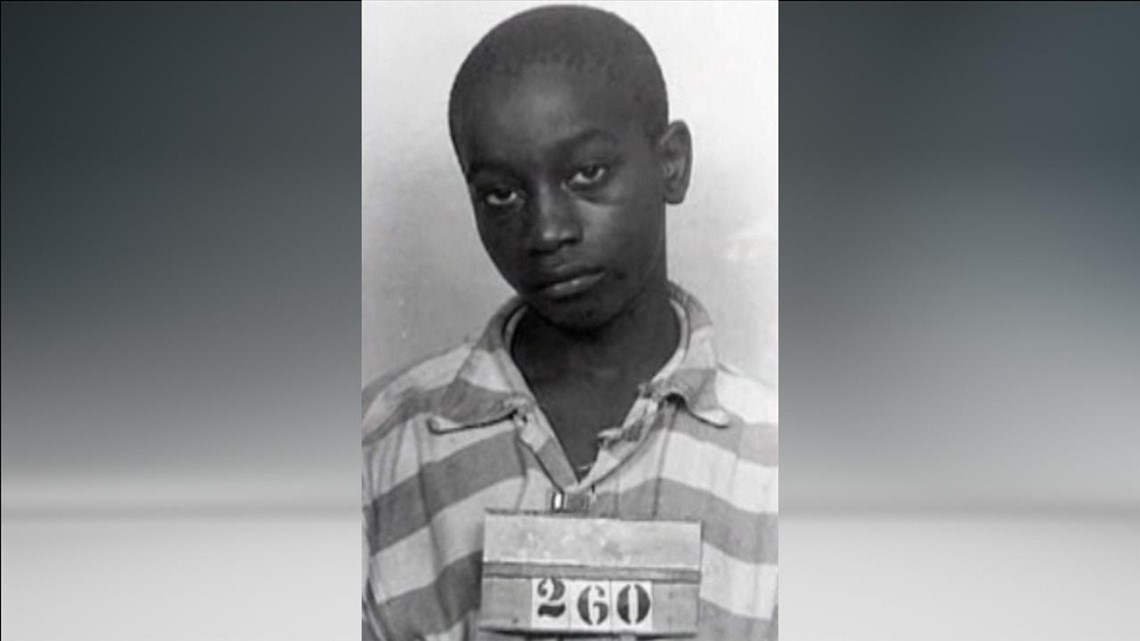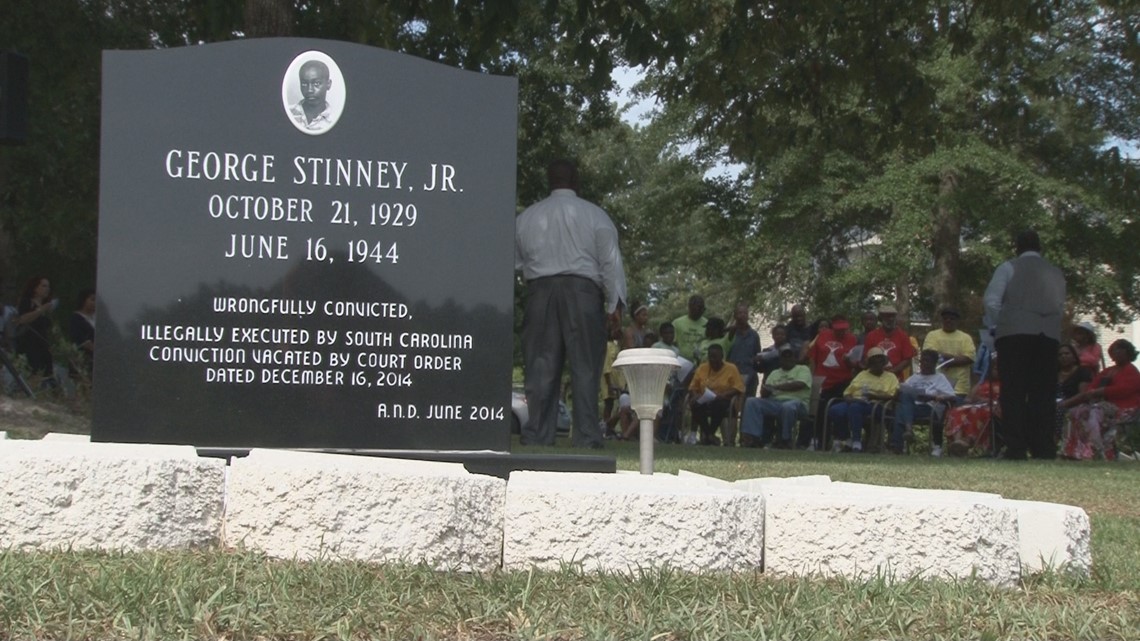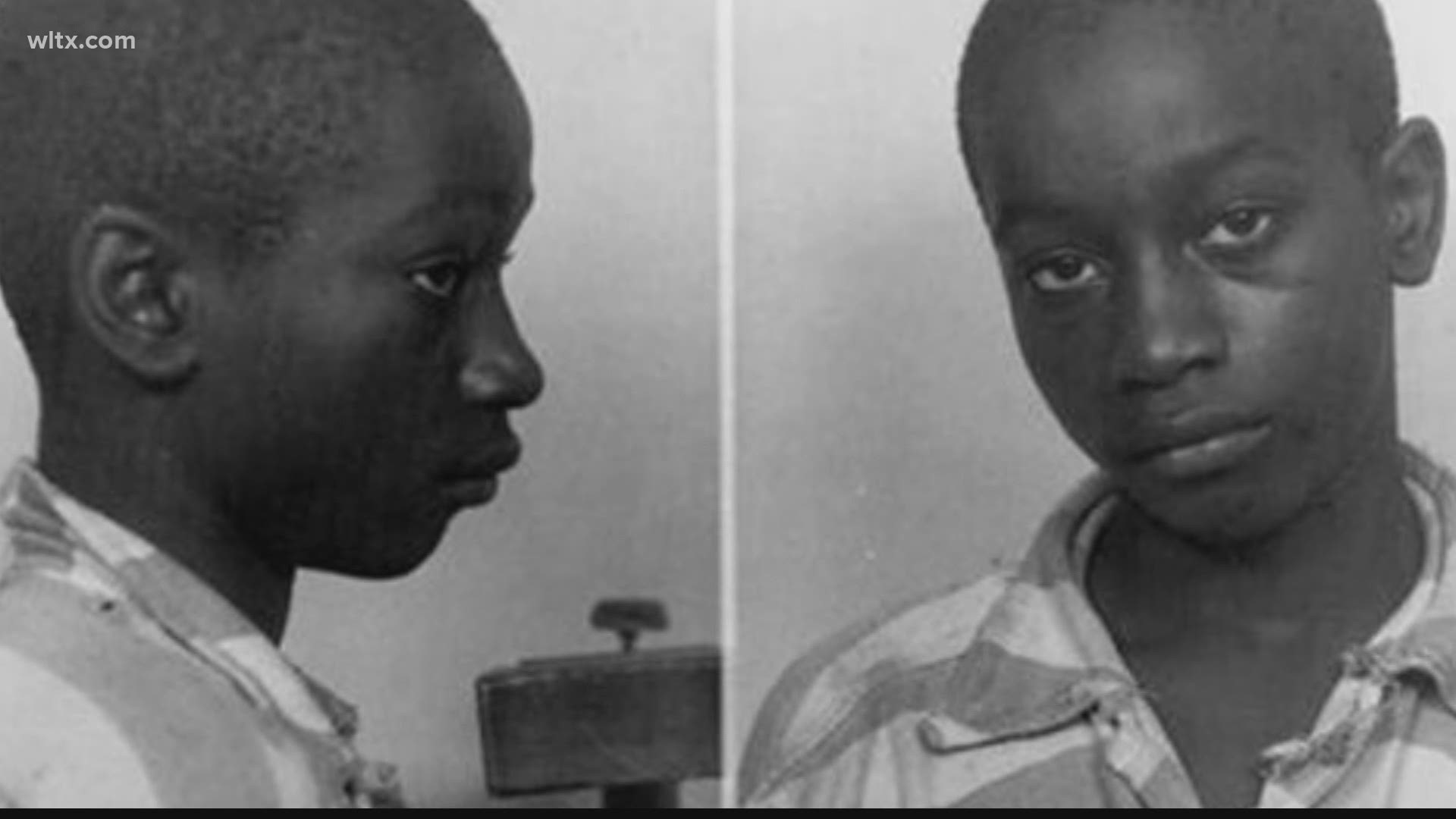SOUTH CAROLINA, USA — It has been 76 years since the execution of a black teen accused of killing two white girls in Clarendon County.
It was 1944 in the segregated Clarendon County town of Alcolu when Mary Emma Thames, 7, and Betty June Binnicker, 11, were found dead.
Deputies got a tip that the girls had been seen talking to George Stinney, Jr., 14, when they came to his family's home and took him away.
What happened next would make history. Confronted by an all-white jury in a trial that took less than a day, Stinney was convicted of murder and executed by electric chair.
Kiana Sweatt was a high school student in 2014 when his case was brought before a judge.


"I think for all of us in our class it was like starting a fire for us to understand more what we have to do to get justice for anyone and us, as well," Sweatt said.
She and her classmates researched the case and worked alongside others to get Stinney's conviction thrown out. Their efforts were successful.
Now, six years later, Sweatt finds herself on the front lines of another push for change. This time it's following the death of George Floyd.
"I do believe that rallies like that make a difference," Sweatt said.
She has been participating in the local rallies along with thousands of others calling for social justice like Lindsey Vann, an attorney and executive director of Justice 360, which advocates for criminal justice reform.


"To say that we can just look at the problems as they're occurring now and not look at it as the broader system that got us here, I just think is not ever going to work," Vann said. "We have to reconcile with the fact that the system has so many racial disparities and we have to correct that."
She hopes to see laws made to create a change so that the deaths of men like Floyd and young boys like Stinney end.
"I think people in South Carolina don't realize that children under the age of 18 are still being sentenced to die in prison. They can be sentenced to life without the possibility of parole," Vann said. "It's just not fair and there are a lot of racial disparities."
For Sweatt, the protests are a step forward.
"I think that for me, just seeing people willing to go out is a big change, or is a big movement," Sweatt said.
She hopes to see society continue to progress in the years to come.

